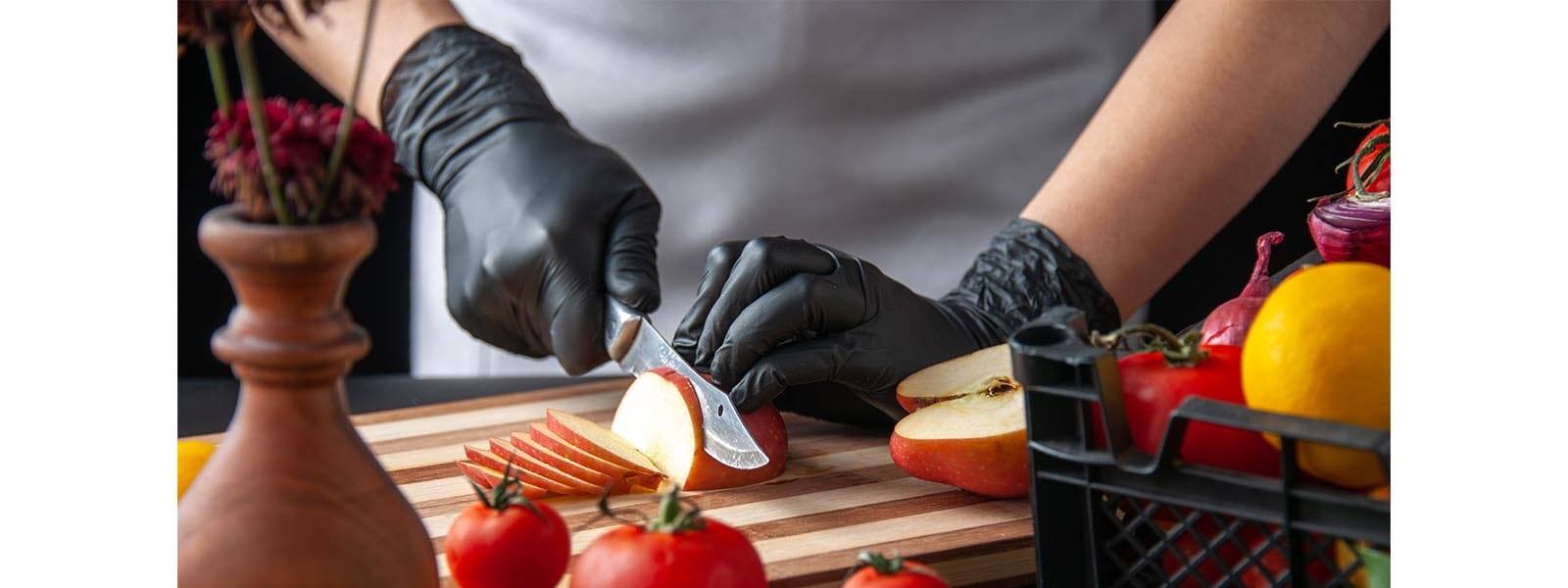
Should Chefs Wear Disposable Gloves?
In the world of culinary arts, where the focus is on creativity, precision, and the art of cooking, the question of whether chefs should wear disposable gloves often sparks a debate. Traditional culinary training emphasizes the importance of hand skill and touch in preparing food, but in recent years, the use of disposable gloves in professional kitchens has become more common. Let's explore the pros and cons of chefs wearing disposable gloves to help you decide whether they belong in the culinary world.
The Case for Chefs Wearing Disposable Gloves
Food Safety
One of the primary reasons for chefs to wear disposable gloves is food safety. Gloves act as a barrier, reducing the risk of cross-contamination between different ingredients, especially when handling raw meat, seafood, and ready-to-eat items. This extra layer of protection can help prevent foodborne illnesses.
Hygiene
While traditional handwashing is essential in the kitchen, gloves provide an additional level of hygiene. They help maintain a higher level of cleanliness and reduce the chances of contaminants from hands, such as dirt, oils, or bacteria, coming into contact with food.
Customer Perception
In the modern culinary world, customer perception plays a significant role. Seeing chefs wearing gloves can give diners a sense of assurance about the cleanliness of the kitchen and the food they are served.
Efficiency
Disposable gloves can make certain tasks more efficient. For instance, when handling spicy peppers or slicing onions, gloves can protect the chef's hands from irritation and save time spent on handwashing and discomfort.
The Case Against Chefs Wearing Disposable Gloves
Loss of Sensory Feedback
One of the key arguments against chefs wearing gloves is that they lose some sensory feedback. The ability to feel the texture, temperature, and doneness of food through touch is highly valued in the culinary world. Gloves can dampen this sensory experience.
Skill and Tradition
Traditional culinary training emphasizes the skill of using one's hands to shape, season, and present food. Chefs take pride in their ability to work with their hands, and gloves can be seen as a hindrance to their craft.
Cost
Disposable gloves can be expensive over time, especially in a busy kitchen where they are frequently changed to maintain hygiene standards. This cost consideration can be a drawback for smaller establishments.
Finding a Balance
In the end, the decision of whether chefs should wear disposable gloves depends on various factors, including the type of cuisine, the specific tasks involved, local health regulations, and individual preferences.
Chefs can strike a balance by:
Using Gloves Selectively
Chefs can use gloves primarily for tasks that involve high risks of cross-contamination or when handling ingredients that may irritate the skin.
Emphasizing Hand Hygiene
Regardless of glove use, proper handwashing remains crucial. Chefs should wash their hands thoroughly and frequently to maintain hygiene standards.
Choosing Eco-Friendly Options
To address environmental concerns, some chefs and restaurants opt for biodegradable or reusable gloves that can be washed and sanitized.
In conclusion, the use of disposable gloves in the culinary world is a matter of practicality, hygiene, and personal preference. While they can offer benefits in terms of food safety and hygiene, they should be used thoughtfully to maintain the sensory experience and artistry that is so central to the world of cooking. Ultimately, the choice should align with the chef's culinary philosophy and the standards of the establishment they work in.

Leave a comment